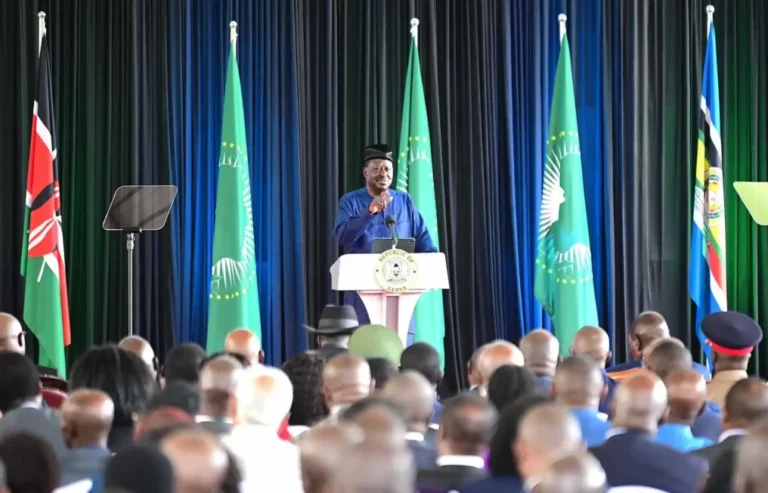Kenya’s decision to formally throw its weight behind Raila’s African Union Commission (AUC) Chairmanship bid has provided an exceptionally strategic boost to his campaign.
This is evidenced by some moves, steps and actions taken to improve chances for victory in what appears to be morphing into a two-horse race.
The fashioning of the formal launch as an East African Community (EAC) affair, bringing together some heads of state and/or their representatives, revealed the potential impact of overt state backing.
Demonstration of the state’s potency did not stop there. Since the launch, no valuable opportunity has been spared.
I am grateful for Presidents Ruto, Museveni, Suluhu, Kiir, Kagame, Ndayishimiye, Kikwete, and Obasanjo’s support, encouragment and endorsement as we roll out my AUC campaign.
Together, we can and will create a peaceful, progressive, and prosperous Africa.
The journey begins! pic.twitter.com/pilyQQz1Oi
— Raila Odinga (@RailaOdinga) August 27, 2024
The former Prime Minister was part of the delegation to the recent Forum on China-Africa Cooperation (FOCAC) hosted by China. The convening that brought together several heads of African states presented an opportune platform for campaigning.
Last week, Raila was featured at the government’s engagement in Germany. He is undoubtedly embedded within the government to further his bid.
The opportunity does not come without its risks. The backing of the state presents its share of constraints and limitations.
Being an overt ‘state project’, he is intricately associated with and tied to Kenya’s foreign policy posturing under the current administration. It is not without bumps. Our policy position has ignited hostilities and acrimony in some quarters, a dynamic that would conceivably stalk Raila’s bid.
Existing tensions with the Democratic Republic of Congo (DRC) for instance, may be a factor in how the latter votes next year.
Unsurprisingly, DRC was not manifestly part of the recent formal launch of the bid in the State House.
In Sudan, Kenya seems to have cast its lot with Hamdan Dagallo and his Rapid Support Forces (RSF). Even though Sudan may not vote, having been suspended from AU’s activities in 2019, dynamics around the conflict may inform how other eligible countries vote.
Those allied to the Sudan Armed Forces (SAF) may highly rank Kenya’s alignment as a deciding factor in how they vote.
Policy alignment at the global level may conceivably impose another layer of constraint on Raila’s candidature. Kenya’s close alignment with the West, specifically the USA, is a real factor to take into account.
Kenya has emerged as the United States’ favourite staging ground for its policy preferences in Africa to counter China’s established and Russia’s rising role on the continent.
Tied to the global alignment is the administration’s open pronouncements on key global developments, key among them being the Russia-Ukraine war and the Israel-Hamas conflict. Kenya’s ‘default’ position for both appears aligned with the West.
Besides the state-imposed, Raila has constraints of his own that may potentially influence his election. He is associated with positions that would easily qualify as unsettling for key actors.
His stand on Somaliland’s independence is particularly contentious and sensitive. The territory’s claim for independence is at the centre of the ongoing fallout between Ethiopia and Somalia, a fallout that is assuming a regional dimension with the entry of Egypt.
Raila’s support for its (Somaliland’s) independence is, therefore bound to be a natural repulsion to Somalia. Similar concerns would be obtained for the case of Morocco and the Sahrawi Arab Democratic Republic.
He has been reported to favour Morocco’s claim over SADR. Incidentally, President Ruto’s initial foreign policy controversies shortly after being sworn in was on SADR. The African Union (AU) recognizes SADR’s right to self-determination.
Though not insurmountable, the constraints call for sustained focus and hard work through to the last minute.




